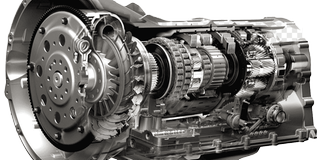Ask the mechanic: When should I service my car’s gearbox?

Hello Paul, I own a 2003 Toyota Prado and often drive between Kampala and Lira. Recently, after replacing my gearbox, the mechanic said it had got spoilt due to delayed service and use of old ATF oil. I was under the impression that ATF does not need to be changed regularly. How often should I service the automatic gearbox and which ATF oil should I use? James
Hello James, Automatic Transmission Fluid (ATF) should be renewed or serviced at manufacturer recommended intervals or when its condition deteriorates as detected during routine service inspection. Many manufacturers such as Toyota recommend a transmission service at 100,000kms from when the vehicle is new.
However, due to the different (sometimes questionable) mileage we usually acquire with used vehicles, one should consider servicing ATF as soon as they get the car. Thereafter, ATF service should be at shorter intervals such as 40,000kms because of age-related wear and tear.
Also noteworthy are the unique transmission operating demands and stress undergone by frequent high speed highway travel coupled with the fact that oil ages with time and not necessarily mileage. This makes it more prudent to inspect the ATF fluid during each service check. A technician should confirm the condition (colour) and viscosity (brown and too light or too thick), which will indicate whether the ATF is dirty and requires service or not.
ATF, like engine oil, works hard under stressful, hot and humid conditions. It helps to keep the automatic gearbox lubricated to prevent frictional wear, clean by transporting after burn soot and dirt to the filter and prevent corrosion as well as maintain sheer stability. A unique feature of ATF is its performance role as a hydraulic oil, which builds pressure required to engage and operate the automatic transmission gears.
As ATF works hard and ages, it cannot maintain the above protective and performance enhancing attributes. This calls for service. To service the Prado automatic gearbox, you can use the Toyota TiV ATF or equivalent Dexron iii ATF from any reputable brand. You can find the quantities required for service in the user handbook while a professional mechanic will know how to carry out fluid service.
Why has my car lost power and fuel economy?
Hello Paul, my car, a Suzuki Swift 2006, has a slow pick up pace while accelerating and over taking, especially when going uphill. Its fuel consumption has also gone up to the extent that I use approximately Shs80,000 from Kampala to Jinja (a distance of about 80kms) and back. What could be the problem? Brian
Hello Brian, your Suzuki Swift seems to be experiencing reduced engine performance and fuel economy. Hesitation and slower acceleration may have a link to the increased fuel consumption. Ordinarily, your engine should give you about 18-20km per litre on a highway.

From your own account, your fuel consumption on a trip to Jinja was 4km per litre (cost of fuel 80,000 ÷ approx price per litre 4000= 20 litres used. Distance to Jinja 80.9kms).
You need to have the car inspected to confirm the condition of the air cleaner, spark plugs and fuel filter. These components will affect the ignition system and reduce engine performance. Also, examine the condition of fuel injectors. If they are dirty or faulty, they can deliver unregulated amounts of fuel, which reduces engine power and fuel economy.
Faulty oxygen sensors are also notorious for increasing fuel consumption. They work with the engine management computer to monitor the exhaust emission and help regulate fuel efficiency. Faulty oxygen sensors will cause delivery of unregulated amounts of fuel, hence poor fuel economy. A computer diagnosis will help identify this fault.
Why does my Toyota smoke after an overhaul?
Hello Paul, I recently overhauled my Toyota Corsa 5E engine but since then it smokes incessantly. My mechanic insists he did all the right things using genuine spare parts and cannot understand where the smoke is coming from and why it persists. Please advise. John
Hello John, excessive smoke from the exhaust means that your engine is burning something it ordinarily should not. This could range from engine oil, unburnt fuel to engine coolant. One of the ways to tell what is causing the excessive smoke is to look at the colour of exhaust smoke.

Generally, blue smoke is caused by burning engine oil, black smoke - excessive fuel (rich) in the fuel air mixture and white smoke - coolant.
An engine should burn a correct mixture of air and fuel during combustion. When the air-fuel ratios are rich, that is more fuel than air, the engine will not burn the excess fuel. Thus, the unburnt fuel is emitted as black smoke.
This can be caused by bad oxygen sensors, worn out spark plugs or faulty injectors. Blue smoke is caused by worn out piston rings which cause intrusion of engine oil in the combustion chamber. In your case, the engine overhaul should have fixed that.
White smoke means infiltration of coolant in the combustion chamber. During an overhaul, the replacement of a cylinder head gasket with a new one should resolve or prevent that. Finally, a professional compression test can be conclusive when determining cause of excessive smoke, especially if it is blue and pointing to an oil leak in the engine.




